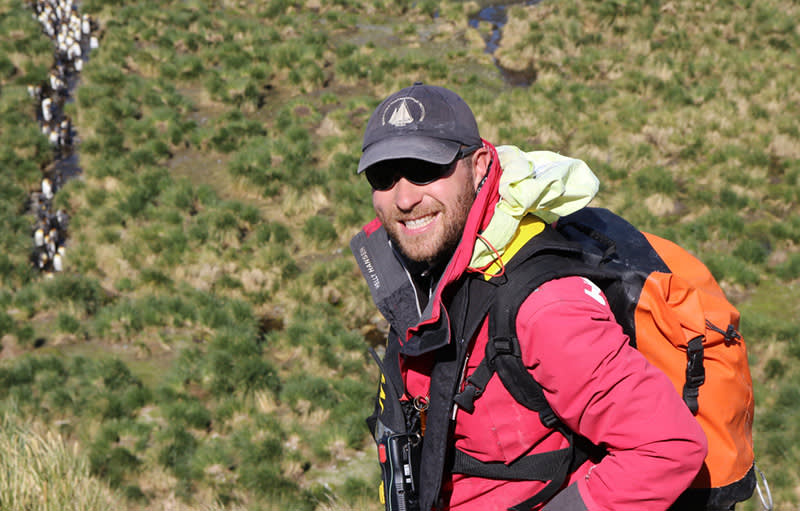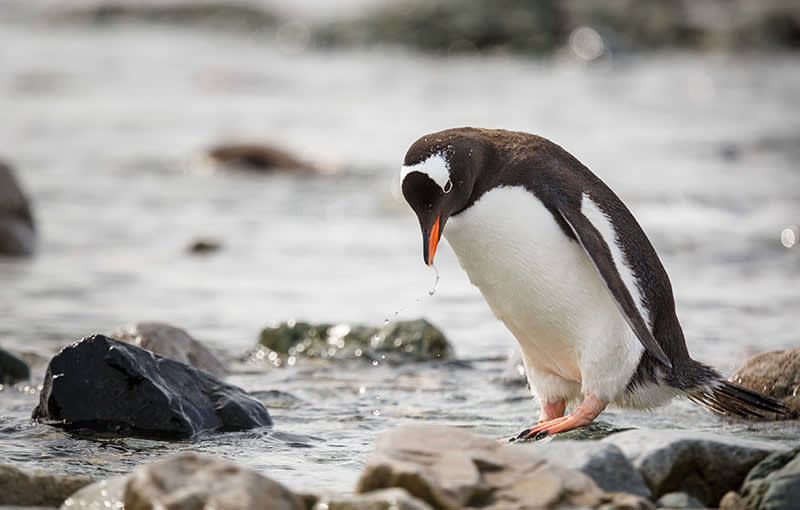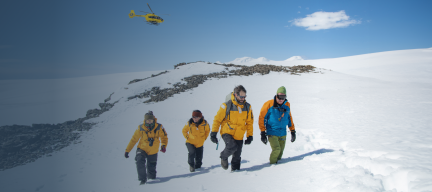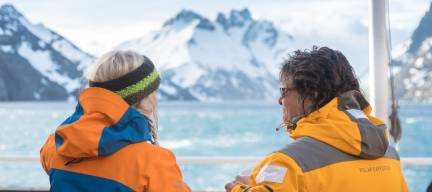Embarking on a polar expedition with Quark is as much fun as any other vacation. And, it can also be a fascinating, enriching learning experience.
Because the world is still learning about the Earth’s Polar Regions, it’s important for us to be able to provide an accurate picture of these areas, and its wildlife, to our guests.
That’s why Quark offers a Scientists in Residence program program, also known as its Experts in Residence program. Launched to coincide with the beginning of the 2012 Antarctic season, the program employs a number of experts who receive opportunities to expand their knowledge of polar wildlife and environments, and then share it with guests.

Jonathan Shackleton at Ernest Shackleton’s grave in Grytviken
“The program is meant to provide scientists and researchers with a means of getting to remote areas, otherwise inaccessible to them, to make their observations, collect samples, conduct research, and gather data for later analysis,” says Karl Kannstadter, Quark’s product director who oversees the program. This is one of the many learning and educational highlights that Quark passengers experience on their polar cruise.
Scientists and experts fully engaged with Quark guests
“The scientists and researchers engage with our passengers, and make their work accessible to the layperson. They also deliver lectures on board, in their area of expertise.”
Quark is proud to announce this year’s scientists-in-residence as Tom Hart, Mark Jessopp, Mike Polito and Caitlin Black.

Dr. Tom Hart of Penguin Lifelines, at Gold Harbour, South Georgia
Hart has been part of the program for four years and his specialty is penguins, along with Black. Jessopp has been participating for three years and focuses on seabirds and seals. Polito has also been with the program for three years and he specializes in birds and mammals and their environment.
“Scientists are chosen for the nature of their research, and the relevance of our destinations to their research,” Kannstadter says. “They conduct ongoing research, and excel at explaining their work to guests in an informative, engaging way.”

Penguin Lifelines setting up cameras at Saunders Islands
Enjoy formal lectures and informal talks
Lectures, presentations and talks are an important component of the program. Often, scientists don’t have opportunities to share their work in ways that most people would understand. With the program, not only can they do this with Quark guests, they get to do it in the place where their research is happening. It is a fantastic match, where everyone benefits.
“Guests can listen to formal lectures, informal talks, and ask questions of the scientists when the scientists aren’t working,” the director says. It can make for fascinating bar conversation!”
Kannstadter says Quark guests can expect two formal presentations from the scientists, in addition to casual conversation here and there. While there are no hands-on activities for guests as part of this program, there is still an opportunity to help with the research.
“Penguin Lifelines does have a participatory program whereby interested parties can help count penguins in photographs that have been posted online,” Kannstadter says. “This is a hugely popular program for Quark passengers coming off an Antarctic holiday.”

Photo by Dave Merron
Environmentally responsible tourism
Incidentally, Penguin Lifelines is one of a number of charities and sustainability initiatives sponsored by Quark as part of our commitment to ensuring the earth’s Polar Regions remain pristine for generations to come.
We would love to share more with you about our company and our programs. To learn more about Quark, contact us. We look forward to hearing from you!








